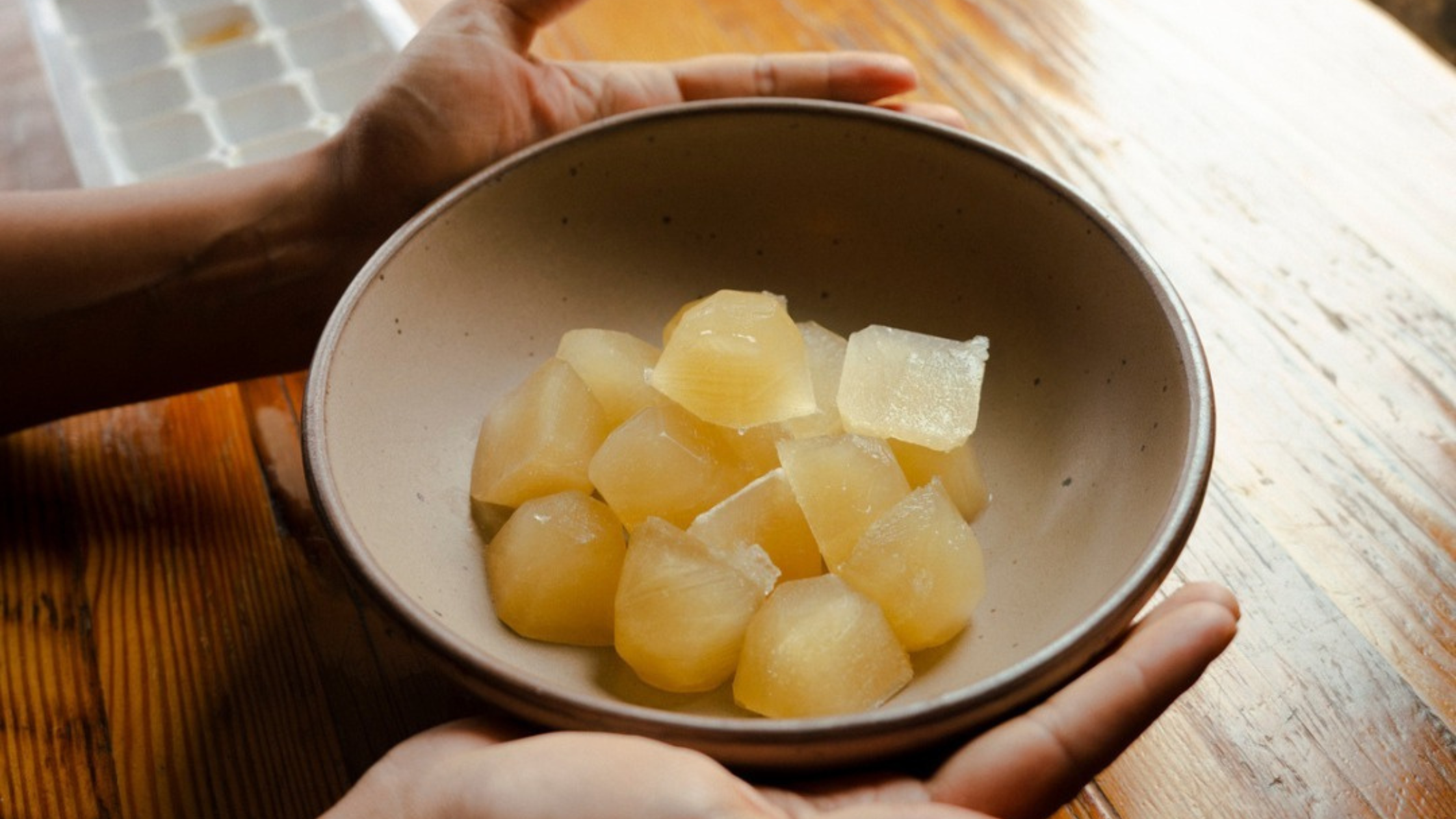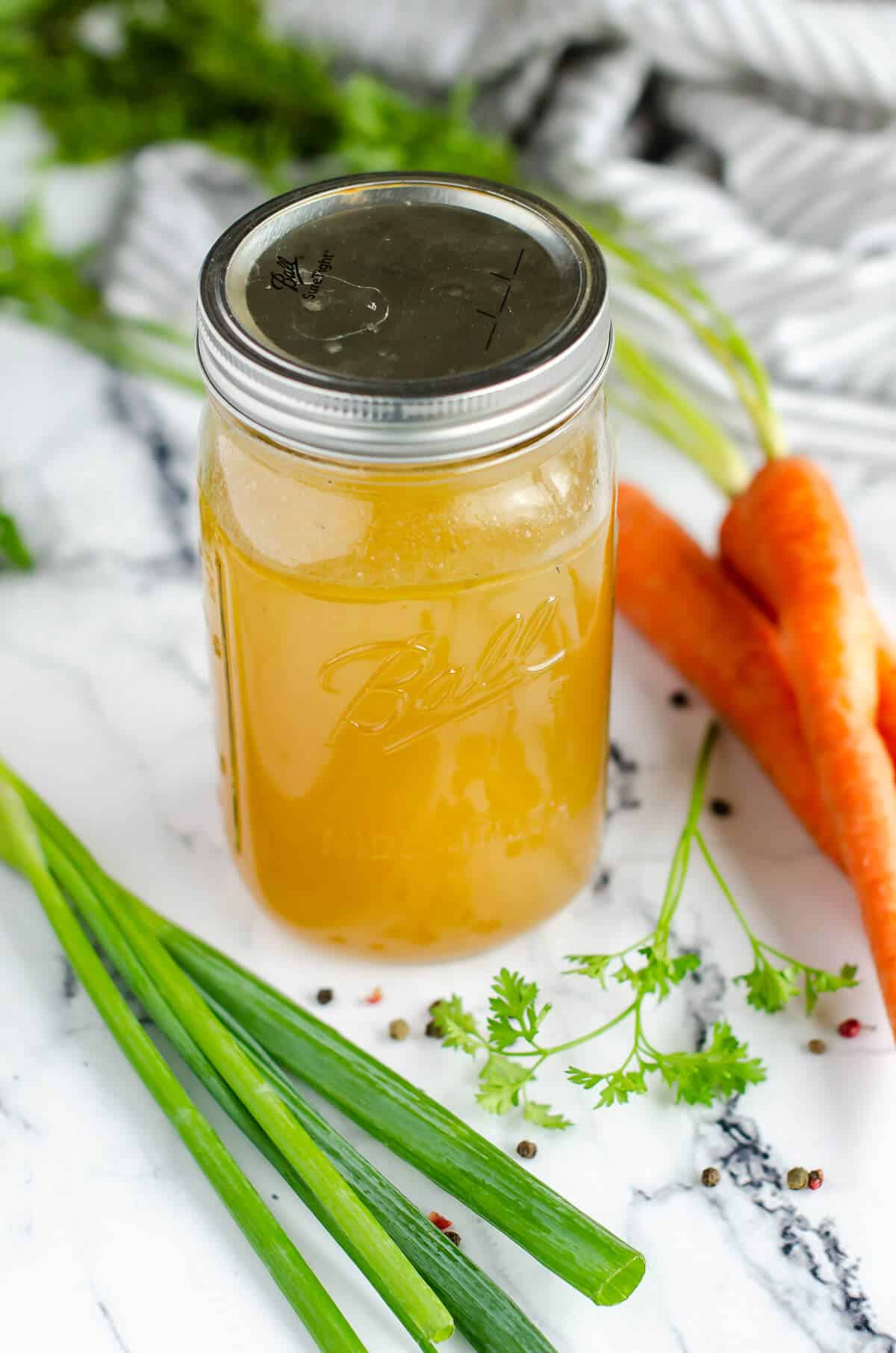The aValue of Healthy Food: Why Bone Broth Is a Great Choice for Infants
Bone broth stands out as a nutrient-dense choice, supplying necessary vitamins and minerals that sustain growth and growth. What are the best ways to introduce bone broth to your little one?
Nutritional Perks of Bone Broth for Newborns
When you introduce bone broth to your infant's diet, you're providing a nutrient-dense food that supplies numerous health and wellness advantages. Loaded with important nutrients, bone broth has calcium, magnesium, and phosphorus, which support your child's growing bones. It's likewise abundant in collagen, helping in the growth of healthy skin, joints, and connective tissues.
Additionally, bone broth is an outstanding resource of amino acids like glycine and proline, which play a considerable role in total development and muscle growth. These nutrients assist advertise a solid immune system, setting a strong structure for your baby's wellness.
In addition, bone broth is very easy to digest, making it a gentle option for your child. By incorporating this wholesome food into their meals, you're ensuring they obtain crucial nutrients necessary for their total wellness. Go ahead and make bone broth a staple in your baby's diet regimen!
Just How Bone Broth Sustains Digestion
Bone broth is loaded with essential nutrients that can really profit your child's food digestion. It advertises intestine health and aids with nutrient absorption, making it a great addition to their diet plan. By incorporating bone broth, you're establishing the stage for a much healthier digestive system.
Nutrient-Rich Composition
One of one of the most nutrient-rich foods you can present to your infant's diet regimen is bone broth, which is loaded with essential minerals and amino acids that support healthy and balanced digestion. Rich in collagen, bone broth aids reinforce your child's digestive tract lining, making it much easier for their body to absorb nutrients. It provides gelatin, which aids in breaking down proteins, advertising smoother food digestion. Additionally, the broth has essential electrolytes like potassium and magnesium, ensuring your baby remains hydrated and balanced. The amino acids, such as glycine and proline, play a crucial role in fixing cells and supporting total health and wellness (organic bone broth). By incorporating bone broth into your child's dishes, you're giving them a wholesome food that supports their digestive system properly.
Promotes Gut Health And Wellness
As you present bone broth right into your baby's diet plan, you'll locate it not just nurtures but also promotes digestive tract health properly. Rich in gelatin, bone broth helps relieve the gastrointestinal tract, lowering inflammation and sustaining a healthy gut lining. This is important for babies, as a well balanced intestine atmosphere lays the foundation for general wellness. Additionally, the amino acids discovered in bone broth, such as glycine, help in food digestion and can assist stop common stomach difficulties. By incorporating this nourishing fluid, you're giving your baby with vital nutrients that add to a flourishing digestion system. Ultimately, a healthy digestive tract can influence everything from immunity to state of mind, making bone broth an excellent selection for your child.
Aids Nutrient Absorption
Introducing bone broth not only supports digestive tract health however likewise plays a substantial role in aiding vitamins and mineral absorption. When you give your infant bone broth, you're providing an abundant resource of minerals and amino acids that boost their digestion processes. The jelly in bone broth assists to calm the gut lining, improving its ability to take in important nutrients. This means that critical vitamins and minerals from other foods are a lot more effectively made use of by your baby's growing body. Additionally, bone broth consists of collagen, which supports the development of healthy tissues and organs. By incorporating this nutrient-dense liquid into your infant's diet regimen, you're guaranteeing they get the optimum gain from their dishes, promoting total wellness and wellness.
Strengthening the Body Immune System With Bone Broth

By incorporating bone broth into your baby's diet, you're offering a natural resource of nourishment that promotes wellness. Consider making bone broth a staple in your baby's meals, as it can play an important role in their immune wellness and advancement.
Easy Ways to Include Bone Broth Into Child's Diet
Integrating bone broth into your infant's diet can be straightforward and satisfying. You can also make use of bone broth as a base for soups or stews that you prepare for the family, guaranteeing your child gets a preference of delicious, healthy and balanced meals.
Another choice is to serve bone broth by itself. Cozy it up and provide it in a sippy cup or little dish-- it's a great way to present new tastes. If your infant enjoys grains, consider cooking rice or quinoa in bone broth rather than water for additional nourishment. Ultimately, you can ice up bone broth in ice trays, making it easy to add a dice to various dishes whenever you want. These techniques will help your child profit of bone broth effortlessly!
Homemade vs. Store-Bought Bone Broth: What to Select
Which is far better for your baby: homemade or store-bought bone broth? Self-made bone broth offers you total control over the active ingredients. You can select top notch bones, organic veggies, and herbs, guaranteeing your infant gets the most nutrients without additives or chemicals. Plus, making it in the house can be a gratifying experience, allowing you to bond with your baby while preparing wholesome food.
On the other hand, store-bought alternatives are practical and save you time. Nonetheless, they frequently contain preservatives and might not match the depth of flavor and nutrition you receive from homemade broth. If you decide for store-bought, try to find brand names that are organic and complimentary from additives.
Inevitably, if you have the time and sources, homemade bone broth is the premium choice for your baby's health and wellness. If you're short in a timely manner, select a quality store-bought alternative as a backup.
Age-Appropriate Bone Broth Serving Recommendations
As your baby grows, it is very important to tailor bone broth offering ideas to their developmental stage. For infants around 6 months, begin with a few spoonfuls of watered down bone broth. Mix it with water or bust milk to make it simpler for them to digest. As they come to be familiar with tastes, you can progressively present thicker broth by minimizing the dilution.
As soon you can try this out as your infant gets to around 8 months, you can serve it cozy in a sippy mug or include it to soft foods like purees. By the time your little one is around a years of age, consider providing bone broth as a standalone drink or blending it right into soups and stews. Simply ensure to keep the broth reduced in sodium. Constantly keep an eye on for any responses, find more info and consult your doctor if you have problems regarding introducing new foods. Appreciate this nourishing enhancement to your child's diet!
Various Other Healthy Foods to Couple With Bone Broth for Babies
When you're looking to enhance the dietary worth of bone broth for your infant, take into consideration coupling it with nutrient-dense vegetables like carrots and spinach. Whole grain alternatives, such as quinoa or wild rice, can additionally include structure and fiber. In addition, integrating healthy and balanced protein resources like shredded chicken or lentils will round out the dish perfectly.

Nutrient-Dense Vegetables
Nutrient-dense vegetables are a fantastic enhancement to bone broth for infants, enhancing both taste and nutrition. Integrating veggies like carrots, spinach, and wonderful potatoes can improve the vitamin and mineral content of your broth.
You can quickly mix these veggies right into the broth or serve them as soft, prepared items along with it. This not just introduces new flavors yet also urges your little one to delight in a variety of nutrients. By combining nutrient-dense veggies with bone broth, you're laying the foundation for a healthy and balanced diet right from the beginning.
Entire Grain Options

Healthy And Balanced Protein Sources
Bone broth pairs splendidly with numerous healthy and balanced protein sources, further enhancing your infant's diet regimen. Attempt including soft, prepared lentils; they're nutrient-dense and packed with healthy protein. You can additionally mix in shredded chicken or turkey, which are easy for your kid to digest. If you're seeking plant-based options, think about mashed tofu or pureed chickpeas-- both provide outstanding healthy protein without overwhelming flavors. Eggs, when presented safely, are an additional great option; they're functional and filled with nutrients. Ultimately, mixing in some well-cooked quinoa can include a wonderful texture and extra healthy protein. By combining these healthy protein sources with bone broth, you're giving your infant a well balanced, nourishing meal that supports their development and advancement.
Often Asked Inquiries
Can Bone Broth Cause Allergies in Infants?
Yes, bone broth can cause allergies in babies, particularly if they're sensitive to certain components. Always consult your pediatrician before introducing brand-new foods and monitor for any type of indications of allergies after feeding.
Exactly How Should Bone Broth Be Stored for Infants?
You should keep bone broth in closed containers, either in the fridge for approximately a week or in the fridge freezer for up to 3 months. bone broth for infants. Always thaw it correctly before offering to your baby
Is It Safe to Offer Bone Broth to Premature Infants?
It's important to consult your pediatrician prior to presenting bone broth to early babies. They'll assess your child's particular health requirements and guarantee it's safe, considering their one-of-a-kind dietary needs and developmental phase. Always focus on skilled guidance.
What Are the Indications of Intolerance to Bone Broth in Children?
When introducing bone broth, watch for indications like fussiness, rash, looseness of the bowels, or vomiting. If your child reveals any one of these responses, it's best to get in touch with a doctor before proceeding to offer it.
Can Bone Broth Be Used as a Meal Substitute for Infants?
No, you should not use bone broth check out this site as a dish substitute for infants. It does not have necessary nutrients needed for their growth. Rather, include it right into their diet plan along with well balanced dishes for included nourishment and taste.